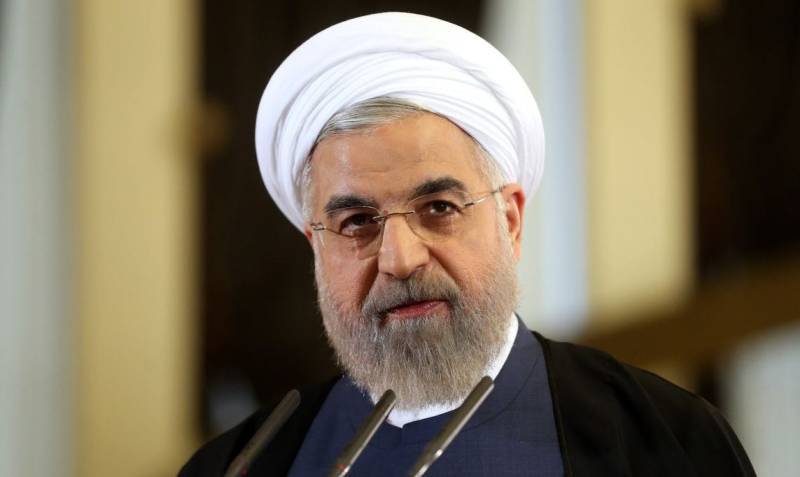TEHRAN: Iranian President Hassan Rouhani yesterday said that the ‘new conspiracies’ by the United States to divide the Iranian nation had miserably failed.
Speaking to journalists here, after leading a massive rally to mark the country’s 39th anniversary of the Islamic Revolution, Rouhani said big rallies across Iran were a ‘response’ to the US.
“The conspiracies of the Zionists have been given a response by the nation. The unprecedented participation by the people in the rallies proves this nation cannot be divided,” he said.
President Rouhani joined the millions of people in Azadi (independence) Street who were marking the anniversary of the victory of the Islamic Revolution.
Earlier, addressing the event, President Rouhani said referendum can be held to settle key disputes between the various parties in Iran. He called upon various political groups to refer to the Article 59 of Iran constitution on the disputed issues.
The Article says that the legislature on certain important social, economic, cultural and political issues can be offered to public vote, he said.
The President said if the two political wings disagree on a certain issue, “there is no need to dispute or promote, the solution is ballot box”. He added: “This is one of the capacities of Iran’s constitution which should be addressed.”
The Article 59 of Iran’s constitution reads: “In extremely important economic, political, social, and cultural matters, the functions of the legislature may be exercised through direct recourse to popular vote through a referendum. Any request for such direct recourse to public opinion must be approved by two-thirds of members of the Islamic Consultative Assembly (parliament).”
The day of Imam Khomeini's return to Iran from exile (February 1, 1979) marks the beginning of the Ten-Day Dawn in ceremonies which culminate with the anniversary of the victory of the Islamic Revolution on February 11, 1979.
Iranian people had toppled the US-backed Raza Shah Pahlavi regime 39 years ago, ending 2,500 years of absolute monarchy in the country.
But the Iranian President reiterated that Tehran was committed to its obligations under the nuclear deal reached between Iran and G5+1 (US, UK, Russia, China, France plus Germany) in 2015.
“Our nation is committed to its obligations till the time that the other side is bound to its obligations but if they aim to exit, they will be harmed,” he said in his address.
He said the US was conspiring against Iran by supporting unrests. “Our people said no to them and deterred the Americans’ conspiracy by elevating their unity and solidarity,” he said.
He welcomed the UN General Assembly's opposition to the US bid against Palestine and said: “They wanted to declare Holy Quds as the capital of Zionist regime but the world stood against this conspiracy.”
The President underlined resisting foreign or possible domestic pressures in a bid to reform the structure of country's economy.
He said the government was committed to fight air pollution in big cities, dust pollution in some border provinces and also draught in cooperation with the regional countries.
President Rouhani referred to the progress made in the country in various fields saying that, for the first time, Iran was recovering more oil from the joint oil fields with Qatar, south of Iran.
Elaborating on the government achievements, he said that Iran’s gas production from the joint gas fields with Qatar in South Pars has increased from 285 mcm to 553 mcm.
Minister Counselor of the Iranian foreign ministry Dr Mohammed Ajam told The Nation that President Rouhani’s offer to go to the referendum on important issues was a big announcement and a ‘shock’ for the rivals.
“For the first time after 40 years from revolution a high official like President Rouhani said we should solve all important issue through referendum,” he said.
Dr Ajam said normalization of relation with the US and also issues like Hijab (cover) of women are very sensitive issues between reformists and the hardliners,” he added. He said several reformists had welcomed the President’s speech.
He said under article 59 vital economic, political, social, and cultural issues can be referred to the people through referendum or reference to direct public vote.
“The request to appeal to public votes must be approved by two-thirds of the entire representatives of the assembly,” Ajam explained.






